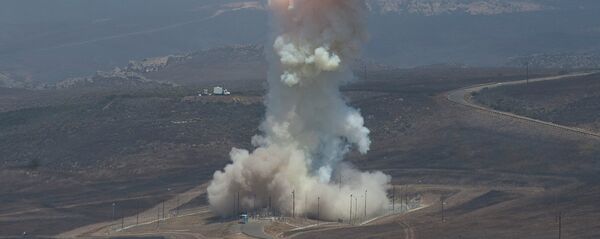Lawmakers envision developing a space-based sensor layer to detect incoming intercontinental ballistic missiles (ICBMs) as well as an interceptor to neutralize threats, C4ISRNet reported November 16. The intercept layer needs to achieve operational capability "at the earliest practicable date," the bill states.
The US Missile Defense Agency would be tasked with producing "a highly reliable and cost-effective" sensor architecture capable of "precision tracking of threat missiles," "discrimination of warheads" and "effective kill assessments," the appropriations measure states. Actionable steps for the program plan would need to be delivered within 12 months of the bill's enactment.
Furthermore, the new missile defense structure must fully integrate with existing BMD layers: Patriot missile defense, the Terminal High Altitude Area Defense (THAAD) system, and the sea-based Aegis system.
Weaponization in space has long been a source of tension in the international community. The international Outer Space Treaty of 1967 sought to create a legal framework around arms control in space. The main arms control provisions prohibit placing weapons of mass destruction in Earth's orbit and installing military assets on the moon or other celestial bodies. The treaty does not, however, explicitly outlaw placing conventional weapons in orbit, such as kinetic interceptors. It's not clear what kind of interceptors the US would add to the space-based missile defense layer.
The government is currently only funded until December 8 under a continuing resolution — basically a temporary funding measure. If the fiscal appropriations measures aren't signed by December 8, the US government will have to shut down.





